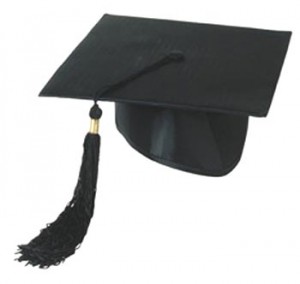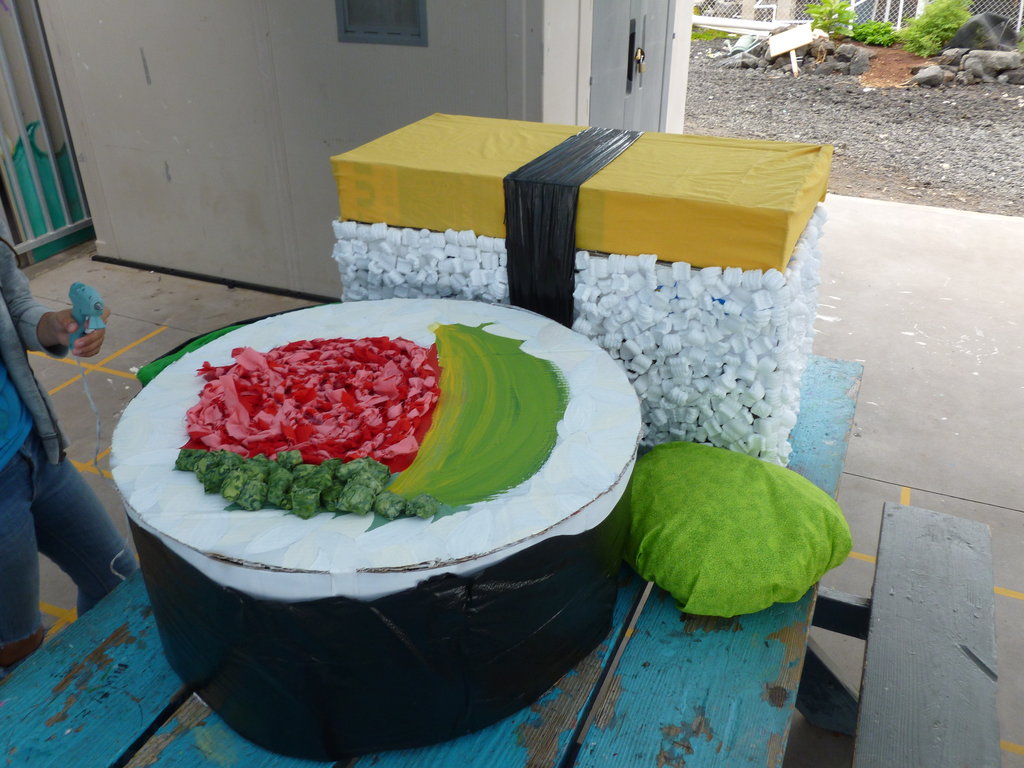
MissHoney
Chicago, IL
Female, 33
Changing lives and saving the world. I've taught various grade levels in MA, CA, and IL., always at schools with progressive education philosophies. So I've done zip-lines & ropes courses, traveled abroad with students, taught Sex Ed, done service work, performed in teacher-student talent shows, and initiated lots and lots of dialogue about friendships. The longer I taught, the more I realized it's the emotional and social lives of kids, rather than the subject I teach, that I really dig.
Well, you are welcome! Thanks for the kind words. My undergraduate degrees were in American History (19th century focus) and American Civilization (not pluralized! with a focus on the youth experience in America). As an undergrad I took and TA'd a bunch of ed courses including the history of American Education, etc. My college did not have minors. I also worked in schools and camps and did whatever I could to understand the adolescent world. A bit messy and stinky at times, but worth it. I then went to Harvard and got a Masters in Education in Teaching & Learning with a focus on secondary social studies. It was a one-year masters program that included observation and student teaching. I was certified in MA and then went to teach in CA. Many states have reciprocity so your certification transfers (but you often have to take a few more tests). Now, I went the spendy route. Many colleges also have programs that allow you to get certified as an undergrad in 4 or 5 years. And many non-Harvard programs are ROCKING teacher training. And elementary ed is a major in many schools. I wanted a strong background in history before I got my training to teach because it drives me batty when people claim teachers don't know their stuff. Funny thing? I went on to teach World History. But a historian is a historian is a historian. Do it! The country needs good teachers!
Ugh. I'm so sorry. There's nothing sadder than the blanket elimination of a position or department, especially one so awesome for a school (and a kid who loves OR hates math). My most recent school had a Math/Science enrichment teacher for the Middle School who partnered with those disciplines' core teachers and helped plan curriculum and also ran programs like Science Olympiad, Math Counts, and Lego Robotics. I think it was funded at 75% (ridiculous, in my opinion). And, you never to justify the awesome/major work you did. It kills me when positions like yours (and art and PE and anything that enriches the life of a school) are eliminated. It makes schools feel bare bones and duller.
My 11th grade AP US history teacher. He was phenomenal. I'd always worked with younger people as a babysitter and counselor, but I hadn't really thought about teaching until I had his class. Not only did he make a huge impact on me academically, he was also the only person to sense and reach out when things in my family were rough. He was a constant source of support and strength and I never once asked for it. He made me realize how much more of a job teaching is than just imparting knowledge about a content area. It was about my development as a person. Only after a few years of teaching did I realize I was trying to model what he had done.
Brinksmanship! I like it! Let me start by saying I despise letter grades. Blech. What does an A mean in a world of totally different schools, teachers, whatever, grade inflation, parents threatening to sue, kids feeling like they should apply to 23 colleges? I can tell you: not much. I took all my classes in college for Pass/Fail. Yup, that was me. It was my one moment of revolutionary zeal in a very quiet life. BUT, I got written narratives by professors (or, you know, TAs) that were far more revealing, I think than a simple letter grade. Specific papers were mentioned, skills I had honed or needed to hone, contributions I made in discussions and one claim of "insubordination". I sought out a school to teach at, then, that allowed for narratives since I think they do a much better job of telling a student's story. That school also felt like it was obligated to still assign letter grades to kids at the semesters, so I've done those too. I'm not a total hippie. So what then to do with the kid on the brink? Unless you are a teacher that just straight up calculates an average, you are going to deal with this. The 89.9. The 64.5. It's totally subjective for many teachers. But that doesn't mean it is unfair. All of my projects and work include rubrics, standards the kids must meet. So they are accumulating wisdom about what it takes to be successful in my class (and I think as a human being) as the year progresses. When I sit down to do the semester grades, I look at the scores of all of those things. I look at whether they consistently turn in work. I think about what is going on at home (I am not going to fail a kid who doesn't turn in homework AND I know mom is battling cancer, if that makes sense). And then I come up with a letter. And often, kids are stuck in between. My logic for the bump up or down includes some of the following: 1. Effort. If the kid was coasting and getting As on tests but unprepared daily and not trying to engage, I'd go lower. If a kid was killing themselves to do well and was SO close to a B but not quite there, I'd bump them up to motivate them. You want to figure out if the individual kid is going to be inspired by needing to bring it OR in being rewarded for trying really hard to bring it. 2. Trajectory. If a kid had struggled all semester and really seems to be making progress, I consider the second half of the scores more heavily than the first half. Some kids have to adjust to a new teacher or new grade and find their groove. And, change over time matters. It really does. 3. Class participation/attitude. If a kid is a turd during group projects or is rude and dismissive, that factors negatively into the grade (and I make sure all my students are aware of that from day 1). I like the wiggle room of classroom demeanor/civitas/whatever. A kid who struggles a bit with writing but is just awesome in discussions, a wonderful cooperative partner, helps classmates should be rewarded for that as those are skills society needs. The nice thing about my school is that I can then go into more detail about what I'm seeing in my room and why that grade makes sense. I also choose my language carefully. A kid never "gets" a C in my class. Or an A. They earn it.
MBA Student
 How many years of work experience do you REALLY need before applying?
How many years of work experience do you REALLY need before applying?
School Teacher
 Are teachers underpaid?
Are teachers underpaid?
Sushi Chef
 How do sushi chefs tell when a fish has gone bad? Is it just the smell?
How do sushi chefs tell when a fish has gone bad? Is it just the smell?
Hmm. I gotta say. I don't think it's true. I don't think men get treated more harshly. In fact, I personally know of three male teachers who have gone on to marry former students. Whether relations were happening while the student was a minor, I can't say for sure. But they were accepted by the school communities and allowed to stay in their positions. One is now the head of a terribly prestigious independent school, the school that he met his wife at in fact. His wife is in her 30s (she was in my graduating class from high school) now so the shock factor isn't there but I know I kept looking at my colleagues with a "seriously? NO ONE is mentioning this??" look. But the idea of an older man/younger woman seems far less scandalous than a older woman/younger man. And, age of consent in many states means a high schooler could technically consent to sex. Statutory rape laws often make it illegal because of an age gap. Before you assume I'm justifying the behavior, know that I'm not. Even if a teacher truly truly thought they were in love with a student, the power dynamic means there's an inherent imbalance. A teacher should have the mental faculties to realize that just isn't good, right, or what we signed up for when we became teachers. And the ethics of the job mean you just DON'T do that. And, I mean, ew. The ick factor is super icky. I'm not terribly knowledgable about what the specific medical definition of a pedophile is...like if a 22 year old teacher has sex with an 18 year old...but it's just not right because of the teacher/student relationship. Heck, I even get weirded out when I hear a professor married a former student, who is most likely of age. I happen to think there is an honor and privilege and responsibility of being a teacher that rules out lusty stuff. BUT, I think if you truly think about the public reaction, the country seems to love a good young (often kind of cute) female teacher doing something gross with a teenage boy. If you look back at the news, female teachers having sex with male students get sensationalized attention on sites like CNN. Starting with Mary Kay Latourneau in 1995 and the parade of gross just continued from there. It is ALL over the national news when a woman does it. Male teachers, like the guys in California who were busted for molestation of very young children and many of them, also make big news. But the interviews and made for TV movies are more likely, I think, to be about some 25 year old blonde lady.
Sorry for the delay! End of year nuttiness.... There's a whole lot of -it depends- I'm going to give you, so I apologize in advance. Not every independent school requires or expects an MA/MS in education or even in your field. Some do. Some expect a major/concentration in that field. Some don't. The two independent schools I've worked at expected the vast majority of teachers to have at least a Masters and usually also prior teaching experience, preferably at an independent school. That, I know, creates the whole "How do I get the job to get the experience I need to get the job" mess. There are so, so many awesome schools out there though. I think folks thinking independent school think of the top 2-3 schools in any given city. Be broad in your search and you might find a smaller one with more open hiring practices. Competition can be a bear at some super elite schools. The MA vs EdM is interesting. If you get the MA you might have a great knowledge base but minimal exposure to how to get a 13 year old to care about the Inca. If you get the EdM you will have lots of opportunities to understand kids but if you are nervous about your expertise, you typically don't have to take many courses in your area. I happened to do my undergrad in history so I felt pretty good about being a historian...mind you, my degree was in American history and I taught non-western world history. But I know about how to study history. Most elite private schools smile more on a field area advanced degree, which I think is a bit misguided. I've taught with some really weird PhDs. I know I lost out on an interview because of my EdM because the teacher later told me she wished she'd hired me for the high school when I began working at the middle school but didn't interview me because of my degree field (I, by the way, only ever want to teach middle school...those kids are a hoot). Just know that many independent schools have rules they break, exceptions they make, and it might never make sense. I did a dual Masters/certification process. The classes towards certification were, at my Ivy League program, not impressive. My teacher skills came from my student teaching as I was luckily placed (by total chance) with an incredible teacher with a similar teaching style to me. So, sorry, I don't have the magic bullet here. But I'd say if you want to teach at an independent school, don't sweat certification. Either do an MA program at a school with a respected Ed program and try to take classes in tandem or vice versa. Do the EdM program and take as many classes in the social sciences as you can. Summer classes, whatever. I took my full course load and then added an extra class each semester in history/social studies because I was so excited about the course offerings. Your job is to help kids be good at social studies. If you think your skills in that discipline are sharp enough, focus on being a great teacher. You'll learn about the age your interested in teaching and methods and practices that may make you awesome. But great teachers know their stuff. So you can't go in with great lesson plans and then not know what you're talking about. Good luck--> I love that you want to teach! Don't let a confusing path stop you.
No. That's what I've got for you. No, never. Metal detectors change the vibe of a school. I know they are deemed more necessary in some schools but there is a different feel when you walk through one to go teach or learn than when you walk in a building without one. I know many schools that have a buzz-in system. I know schools that have security. But arming teachers? No, no no.
-OR-
 Login with Facebook
Login with Facebook (max 20 characters - letters, numbers, and underscores only. Note that your username is private, and you have the option to choose an alias when asking questions or hosting a Q&A.)
(A valid e-mail address is required. Your e-mail will not be shared with anyone.)
(min 5 characters)
By checking this box, you acknowledge that you have read and agree to Jobstr.com’s Terms and Privacy Policy.
-OR-
 Register with Facebook
Register with Facebook(Don't worry: you'll be able to choose an alias when asking questions or hosting a Q&A.)